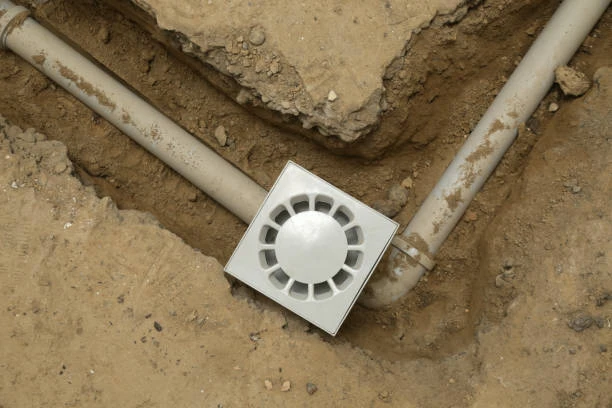Introduction
In modern plumbing, UPVC pipes fitting play a pivotal role, especially in drainage systems. The adoption of solvent weld technology has transformed above-ground drainage setups by offering stronger, leak-proof, and more durable connections. This article delves into the details of solvent weld UPVC pipes fitting and their significance in building efficient drainage systems.
What Are Solvent Weld UPVC Drainage Fittings?
Solvent weld UPVC pipes fitting are a specialized type of plumbing accessory designed for creating secure joints in drainage systems. These fittings use a solvent-based adhesive that chemically bonds the UPVC materials, resulting in a watertight and durable connection. The solvent welding process is simple yet highly effective, ensuring minimal risk of leaks or joint failures.
Advantages of Solvent Weld UPVC Fittings
Leak-Proof Connections
The solvent welding process creates a chemical bond that eliminates gaps, making the fittings completely watertight.
Long-Term Durability
UPVC material is naturally resistant to corrosion, ensuring these fittings remain functional for decades without significant degradation.
Ease of Installation
The solvent welding method is straightforward, reducing installation time and complexity.
Applications of Solvent Weld UPVC Drainage Fittings
Residential Drainage
These fittings are ideal for home plumbing systems, including bathroom and kitchen drainage setups.
Commercial and Industrial Setups
Industries and large-scale commercial buildings rely on UPVC fittings for their robustness and reliability.
Specialized Applications Like Rainwater Harvesting
Solvent weld UPVC fittings are widely used in rainwater collection systems due to their durability and seamless connections.
How Solvent Weld Technology Enhances Above Ground Drainage Systems
Superior Joint Integrity
The chemical bond formed during solvent welding ensures that joints remain intact even under high pressure or environmental stress.
Resistance to Environmental Stress
UPVC fittings resist UV exposure, temperature fluctuations, and chemical exposure, making them ideal for above-ground applications.
Compatibility with Diverse Piping Systems
Solvent weld UPVC fittings can integrate seamlessly with various pipe types, offering versatile solutions.
Material Characteristics of UPVC Fittings
Chemical Resistance
UPVC resists a wide range of chemicals, making it suitable for industrial applications.
Lightweight and Robust Design
Despite being lightweight, UPVC fittings offer high impact resistance and structural integrity.
Longevity in Varying Environments
UPVC fittings maintain their performance across diverse climates, ensuring a long service life.
Key Features of an Efficient Above Ground Drainage System
Proper Slope and Alignment
A well-designed drainage system prevents water stagnation and promotes efficient flow.
Compatibility with Fittings
Using the right fittings ensures a leak-proof and efficient drainage network.
Noise Reduction Measures
Modern UPVC systems incorporate noise-dampening designs for quieter operation.
Installation Steps for Solvent Weld UPVC Drainage Fittings
Tools and Preparation
- Gather essential tools like a pipe cutter, solvent adhesive, and cleaning materials.
- Ensure pipes and fittings are clean and dry before installation.
Step-by-Step Process
- Cut the pipe to the desired length.
- Clean the pipe and fitting ends with a solvent cleaner.
- Apply the solvent adhesive evenly to both surfaces.
- Insert the pipe into the fitting, twisting slightly to ensure even distribution.
- Hold the joint in place for a few seconds to allow the adhesive to set.
Tips for Secure Installation
- Work in a well-ventilated area.
- Avoid excess adhesive, which can weaken the bond.
Maintenance Practices for UPVC Drainage Systems
Regular maintenance extends the life of UPVC systems. Clean the pipes periodically to prevent clogs and inspect fittings for signs of wear or damage.
Environmental Benefits of UPVC Drainage Fittings
Reduced Waste and Recyclability
UPVC materials are recyclable, contributing to environmental sustainability.
Energy-Efficient Manufacturing Processes
Advanced manufacturing techniques reduce energy consumption and emissions.
Longevity Reducing Replacement Needs
The long service life of UPVC fittings minimizes the environmental impact of replacements.
Challenges with Solvent Weld UPVC Systems
Despite their advantages, solvent weld systems require precise installation to avoid issues. Temperature and humidity can also affect the adhesive’s performance.

Cost-Effectiveness of Solvent Weld UPVC Fittings
Although the initial cost may seem higher, solvent weld fittings reduce long-term expenses due to their durability and low maintenance requirements.
Market Trends and Innovations in UPVC Drainage Fittings
Globally, the demand for solvent weld UPVC fittings is growing, driven by advancements in material technology and increasing awareness of their benefits.
Global Demand for Above Ground Drainage Systems
Emerging economies are adopting UPVC systems to modernize their infrastructure, creating significant growth opportunities in the market.
Future Outlook for Solvent Weld UPVC Drainage Fittings
The future of solvent weld UPVC fittings lies in their integration with smart technologies and their contribution to sustainable urban development.
Conclusion
Solvent weld UPVC drainage fittings have revolutionized above-ground drainage systems, offering unmatched reliability, durability, and environmental benefits. With continuous innovations, these fittings are set to play a critical role in shaping the future of plumbing systems worldwide.
FAQs
- What makes solvent weld UPVC fittings unique?
The solvent welding process creates a chemical bond that ensures leak-proof and durable connections. - Can solvent weld UPVC fittings be used in hot climates?
Yes, UPVC fittings resist UV rays and high temperatures, making them suitable for hot environments. - Are solvent weld UPVC systems cost-effective?
They offer long-term savings due to reduced maintenance and high durability. - What are the common applications of solvent weld UPVC fittings?
They are used in residential, commercial, industrial, and rainwater harvesting systems. - How do I ensure a secure solvent weld connection?
Clean and dry the surfaces before applying adhesive, and follow the manufacturer’s instructions for best results.